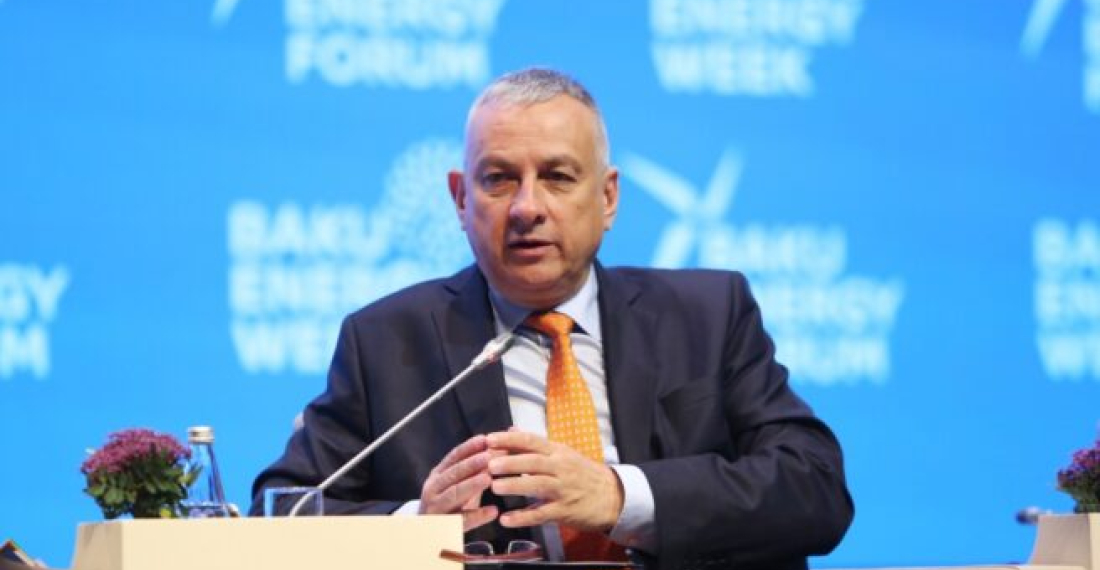Between 12 and 18 March, European Commissioner for International Partnerships Jozef Síkela will visit the five Central Asian countries to strengthen the EU-Central Asia partnership ahead of the EU-Central Asia Summit and scale up Global Gateway, the EU’s investment strategy to boost jobs and sustainable economic growth.
In a statement Commissioner Síkela said: “Central Asia is an important partner for the European Union, and our cooperation offers a great potential for the future. More than ever, current global challenges emphasise the need for solid partnerships and that is exactly what I aim to strengthen during my mission. My goal is to focus on key Global Gateway projects, which the EU and Central Asian partners are advancing together to create quality jobs, unlock new business opportunities, and improve essential services—from education to modern infrastructure."
Commissioner Síkela, aims to use the visit to Central Asia to advance the development of the Trans-Caspian International Transport Route. On X, the Commissioner said: "Trade between Europe and Asia is growing fast. But to make it stable and efficient, we are developing the Trans-Caspian Transport Corridor — a fast, secure route connecting Europe and Asia in 15 days or less, and an alternative to Russian and Red Sea routes. I will visit Turkmenbashi Port in Turkmenistan, the gateway to this corridor. But most of my meetings in all five countries will focus on making this project a reality".
During his visit, Síkela will meet with officials from the five Central Asian countries to promote economic collaboration under the EU's Global Gateway Strategy. He highlighted that the region has a 340 billion euro economy, growing at an average rate of 5 percent annually, with vast untapped potential for further cooperation.
The Commissioner’s visit will focus on the main Global Gateway priority areas in Central Asia:
- transport, with a particular emphasis on the development of the Trans-Caspian Transport Corridor to reduce travel times and boost trade;
- critical raw materials, to promote best practices, new jobs and economic resilience;
- digital connectivity, to bridge the digital gap and boost access to secure high-speed internet;
- the water, energy & climate sector, including the flagship project to support the construction of resilient infrastructure, to promote access to reliable, affordable and clean energy.
During the visit, Commissioner will sign several contracts linked to the above four key priority areas.
The Commissioner will kick off the visit in Turkmenistan, where he will meet government leaders as well as private sector representatives. The Commissioner will also visit the Turkmenbashi port, a strategic point for the development of the Trans-Caspian Transport Corridor.
In Kazakhstan, the Commissioner will meet high-level government representatives, participate in ceremony to sign bilateral and regional agreements in the field of transport and critical raw materials, press conference as well as engage with Kazakh and EU businesses.
In Tajikistan, the Commissioner will attend several meetings with government leaders. This will be followed by a signing ceremony of important projects to support the green energy transition and the local cotton value chain. The next day, the Commissioner will visit the landmark Rogun Hydropower Plant for future support.
In Kyrgyzstan, the Commissioner will meet senior government representatives and participate in ceremonies to sign projects on water, energy, transport and human development. He will also discuss investment opportunities with the World Bank, Asian Development Bank, and European Bank for Reconstruction and Development in the country. One of the topics will be potential support to the construction of the Kambarata-1 hydropower plant. In addition, the Commissioner will engage with youth representatives and the UN.
The Commissioner will conclude his visit in Uzbekistan, meeting with high-level government representatives. He will travel to the Almalyk Mining and Metallurgical Complex and also exchange with Uzbek and European businesses. The next day, he will attend the signing ceremony of regional projects in the field of digital connectivity.
The visit will be conducted in the Team Europe spirit: EU financing institutions, the European Investment Bank, and European Bank for Reconstruction and Development, as well as the EU private sector and Member States present in the region will take part in different parts of the mission. The upcoming first-ever EU-Central Asia Summit early April as well as the Global Gateway Forum in June will further build on the commitment of the EU and Central Asia to delivering lasting impact.
Global Gateway is the EU's positive offer to reduce the worldwide investment disparity and boost smart, clean and secure connections in digital, energy and transport sectors, and to strengthen health, education and research systems. As a strategy it embodies a Team Europe approach that brings together the European Union, EU Member States, and European development finance institutions. Together, we aim to mobilise up to €300 billion in public and private investments from 2021 to 2027, creating essential links rather than dependencies, and closing the global investment gap.






